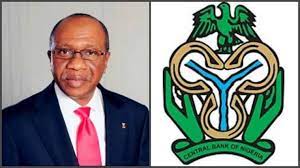The Economic and Financial Crimes Commission (EFCC) is intensifying its investigation into an alleged forex scandal, probing at least $347 billion allocated to Nigerian companies from January 2014 to June 2023. The inquiry has expanded to include foreign firms operating in Nigeria, with suspicions surrounding forex allocations during the tenure of former Central Bank Governor Godwin Emefiele.
According to data from the Central Bank of Nigeria (CBN), both local and foreign companies received substantial amounts, with industrial companies and banks reportedly receiving the lion’s share under Emefiele’s administration. The EFCC is particularly focusing on 52 companies that received the largest chunk of the $347 billion allocation.
The breakdown of forex allocation reveals that the industrial sector received the most, totaling $69.71 billion, followed by financial services, which got $136.54 billion under the invisible category. The EFCC’s probe also extends to foreign companies, including Crane Currency Limited, Gleseck+Deverint GmbH, De La Rue Ltd, Oberthur Fiduciaire SAS, and Orelll Fussli.
This investigation follows the EFCC’s visit to the headquarters of Dangote Industries Limited earlier in January and its ongoing scrutiny of Emefiele’s activities during his tenure as CBN governor. The commission has demanded documents supporting the allocation and utilization of forex by the companies in question over the past decade.
Forex scarcity has been a significant challenge for the Nigerian economy, leading to the closure of several firms. The ongoing investigation aims to uncover potential irregularities in forex transactions, contributing to the country’s economic challenges.
The EFCC has reportedly written to over 85 entities, including corporate organizations and individuals, seeking detailed documents of their foreign exchange transactions over the last ten years. The scarcity of forex in Nigeria has adversely affected the economy, resulting in the closure of multiple businesses.
As the investigation unfolds, concerns are growing about the potential impact on the country’s foreign exchange reserves and the stability of the Nigerian economy. Foreign firms, including Crane Currency Limited, Gleseck+Deverint GmbH, De La Rue Ltd, Oberthur Fiduciaire SAS, and Orelll Fussli, now find themselves under the regulatory scrutiny of the EFCC.
The forex allocation probe by the EFCC represents a crucial effort to address concerns about transparency and integrity in the management of foreign exchange resources in Nigeria. The outcome of the investigation may have far-reaching implications for both local and foreign entities involved in forex transactions within the country.











